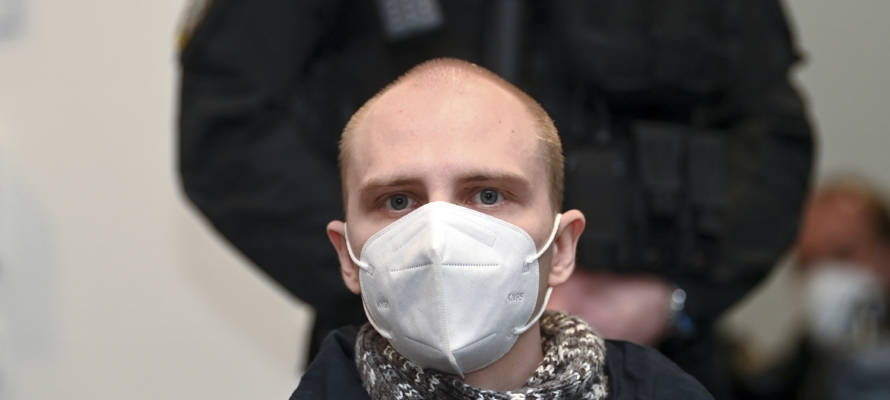The convicted neo-Nazi was the one behind the 2019 synagogue attack in Halle, Germany.
By Ben Cohen, Algemeiner
The German neo-Nazi terrorist serving a life sentence for an attempted massacre in Oct. 2019 at a synagogue in the city of Halle as worshippers held services marking Yom Kippur, the holiest day in the Jewish calendar, has been sentenced to an additional seven years for his violent attempt to break out of jail just over a year ago.
Stephan Balliet received the sentence on Monday, the German news agency dpa reported.
On Dec. 12 2022, Balliet took several officers at the prison in the city of Burg hostage using a weapon he constructed himself, attempting to force them into releasing him. The standoff lasted for nearly an hour before Balliet was overpowered.
He was later charged with hostage taking and violating Germany’s Weapons Act. In addition to his extended prison sentence, Balliet has been ordered to pay 23,000 Euros in compensation to two of the officers he seized, one of whom has had to resign his job due to Post-Traumatic Stress Disorder (PTSD).
In 2020, Balliet was convicted by the regional high court in Naumberg, Germany, for the attack on the synagogue in Halle on Oct, 9, 2019. As more than 50 worshipers were inside the sanctuary for Yom Kippur services, a heavily-armed Balliet tried repeatedly but failed to smash through the synagogue’s security doors.
He then shot dead a 40-year-old female passerby before driving to a nearby kebab restaurant, where he murdered a 20-year-old male customer on the assumption that the victim was a Muslim.
Testimony from psychiatrists at Balliet’s latest trial underlined their fears that he is willing to kill again. As the sentence was read out, four masked special forces officers stood guard over Balliet in the courtroom.
Throughout the proceedings in his trial for the attack in Halle, Balliet never once showed any remorse for the outrage, described by federal prosecutor Kai Lohse as an attack “on Jewish life in Germany as a whole” that was fueled by the gunman’s “racist, xenophobic and antisemitic ideology.”
When his trial began on July 21, 2020, Balliet wore a “big grin” as prosecution lawyers replayed the same video that the neo-Nazi had livestreamed during the attack.
In testimony, he advanced the conspiracy theory that “Jews were the organizers” of the massive influx of Syrian refugees into Germany in 2015.
Asked why he had chosen to attack a synagogue rather than a mosque, he replied: “There is a difference between fighting the symptoms and fighting the cause.”
On another occasion, he emphasized that the attack on the Halle synagogue was “not a mistake, these are my enemies.”




